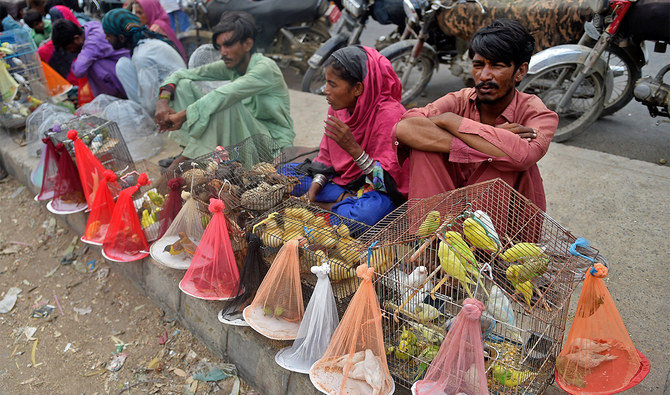KARACHI: Pakistan’s central bank on Monday raised the key policy rate by 150 basis points to 13.75 percent as the inflation outlook deteriorated due to home-grown and international factors, the State Bank of Pakistan said.
The central bank announcement comes at a time when the country’s national currency hit an all time low at Rs200.93 against the United States Dollar on Monday, amid continued demand for import payments and as inflation increased by 13.4 percent in the month of April 2022.
The central bank said provisional estimates suggest growth in the current fiscal year had been much stronger than expected but a recent fuel subsidy had compounded pressure on the exchange rate.
Previously, the central bank had hiked the key interest rates by 250 basis points to 12.25 percent in an emergency meeting on April 7, 2022, citing deterioration in the inflation outlook and rising risks to external stability due to domestic political uncertainty and the Russia-Ukraine war.
“External pressures remain elevated and the inflation outlook has deteriorated due to both home-grown and international factors,” the monetary policy statement said. “Domestically, an expansionary fiscal stance this year, exacerbated by the recent energy subsidy package, has fueled demand and lingering policy uncertainty has compounded pressures on the exchange rate.”
Globally, inflation has intensified due to the Russia-Ukraine conflict and renewed supply disruptions caused by a new COVID-19 wave in China. As a result, almost all central banks across the world are suddenly confronting multi-year high inflation and a challenging outlook, the Pakistani state bank said.
“This action, together with much needed fiscal consolidation, should help moderate demand to a more sustainable pace while keeping inflation expectations anchored and containing risks to external stability,” the statement added.
The central bank said the country’s economy was estimated to grow by around 6 percent this year.
“After contracting by 0.9 percent in FY20 in the wake of COVID, the economy has rebounded much more strongly than anticipated, growing by 5.7 percent last year and accelerating to 5.97 percent this year, as per provisional estimates,” the central bank said.
At 13.4 percent, headline inflation unexpectedly rose to a two-year high in April and has now been in double digits for six consecutive months.
Inflation momentum was also elevated, at 1.6 percent on a monthly basis, and core inflation rose further to 10.9 and 9.1 percent in rural and urban areas, respectively. On the external front, notwithstanding some encouraging moderation in the current account deficit during April, the rupee depreciated further due to both domestic uncertainty as well as the recent strengthening of the US dollar in international markets following the tightening by the Federal Reserve.
“The baseline outlook assumes continued engagement with the IMF (International Monetary Fund), as well as reversal of fuel and electricity subsidies together with normalization of the petroleum development levy (PDL) and General Sales Tax on fuel during FY23,” the central bank said.
Pakistan and the IMF are currently negotiating the country’s seventh review under a $6 billion Extended Fund Facility (EFF), with $3 billion disbursed so far. Islamabad is expected to receive another $1 billion after the completion of the review, which has been stalled since the previous government announced in February an around $1.7 billion relief package in energy prices.

















